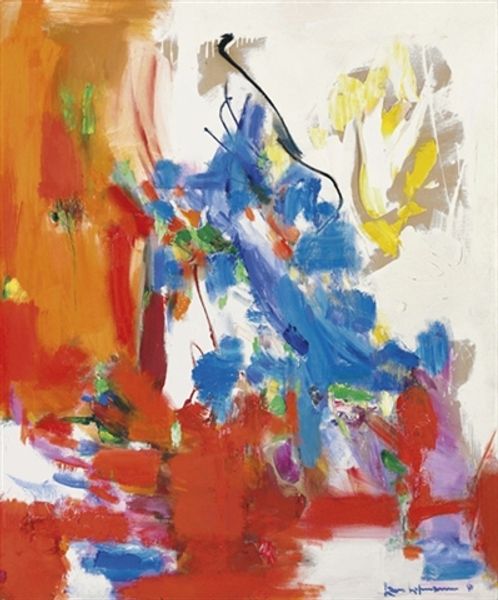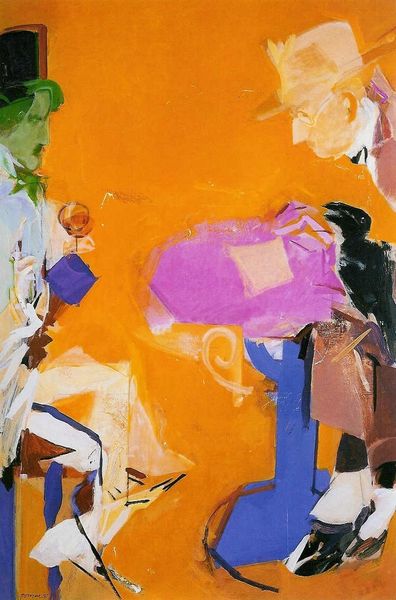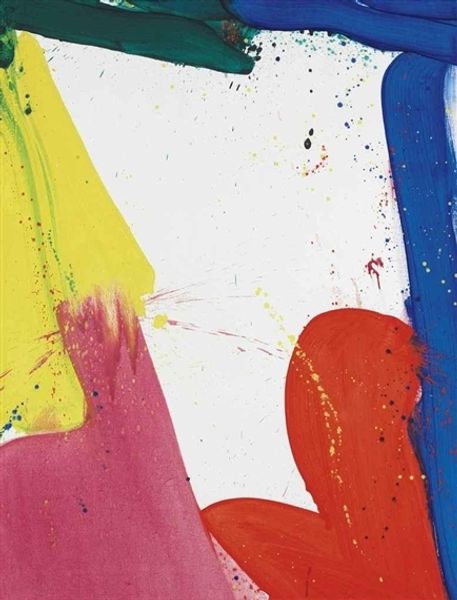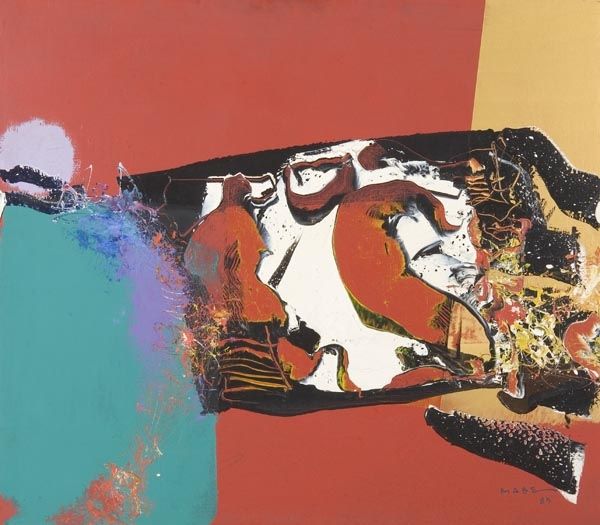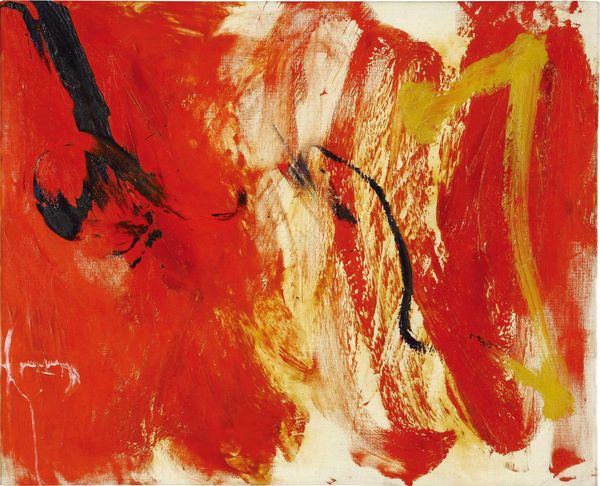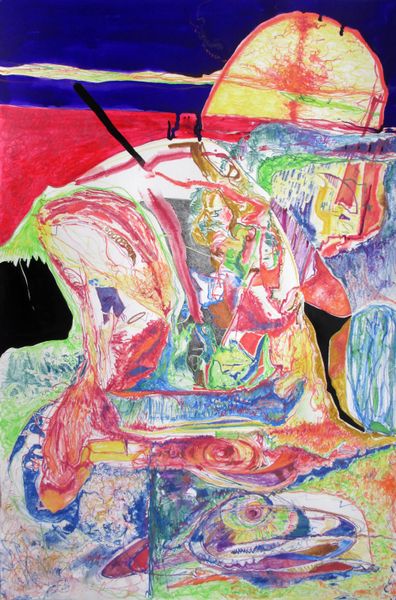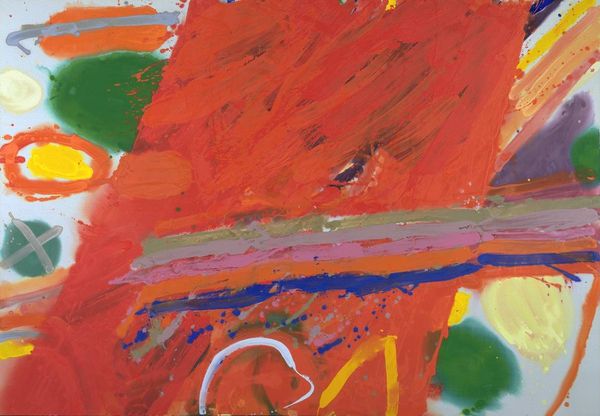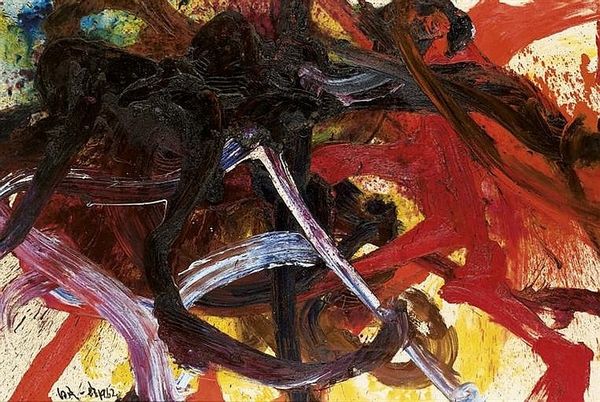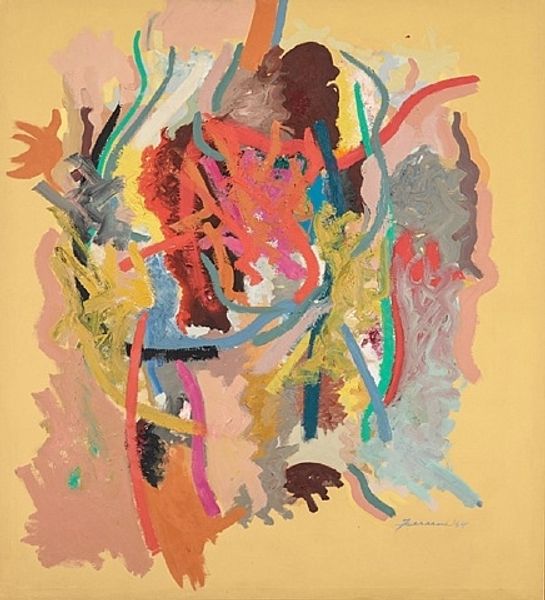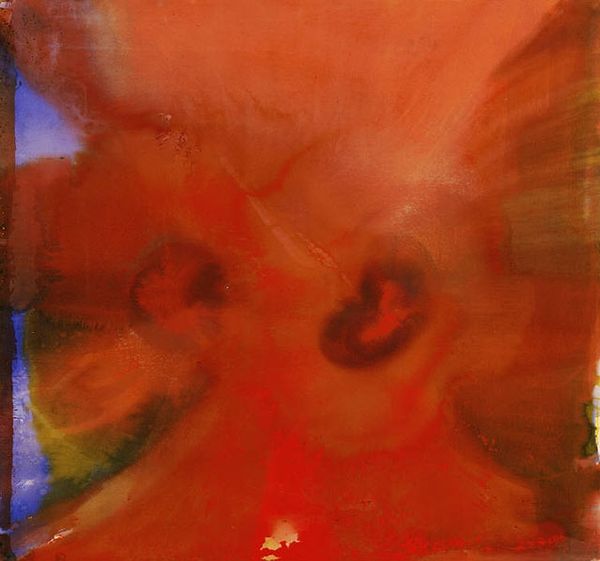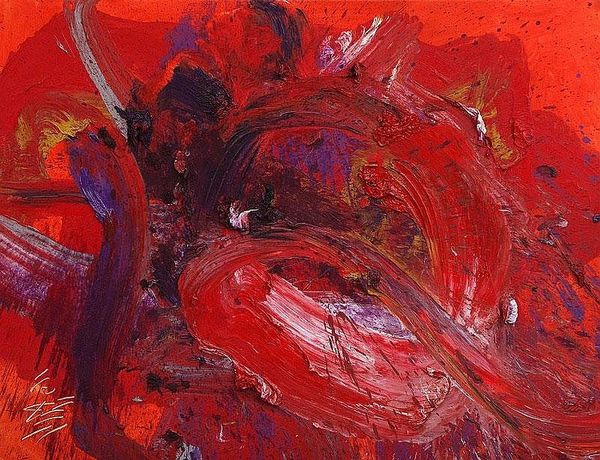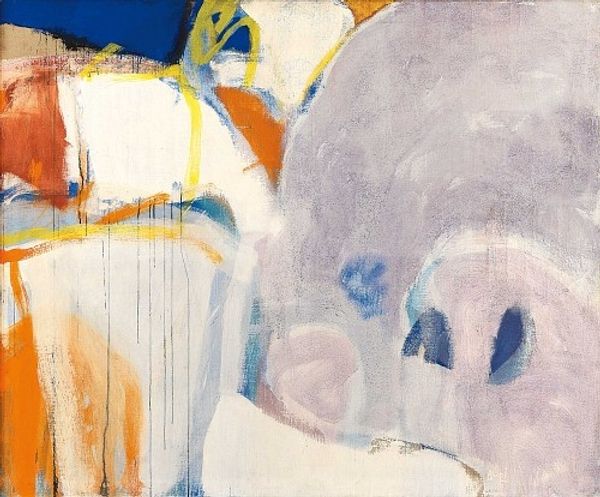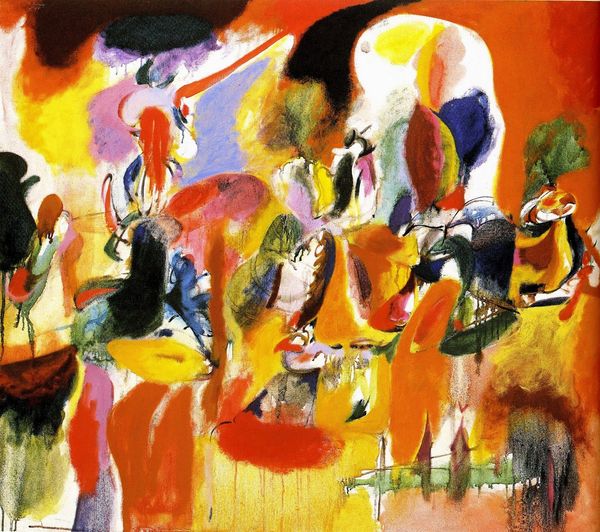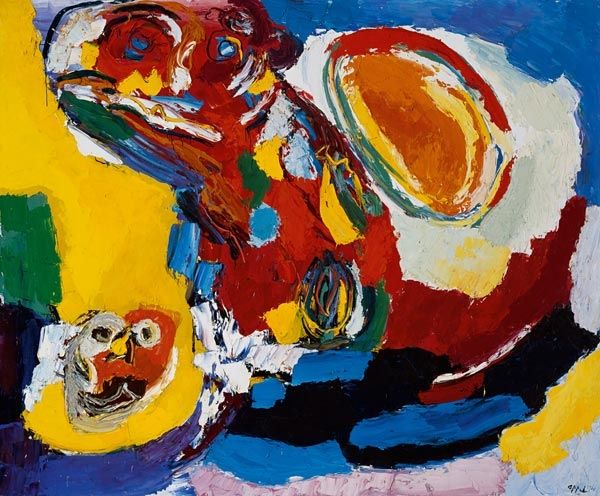
painting, acrylic-paint, gestural-painting
#
abstract-expressionism
#
abstract expressionism
#
abstract painting
#
non-objective-art
#
painting
#
colour-field-painting
#
acrylic-paint
#
gestural-painting
#
acrylic on canvas
#
abstraction
#
painting art
#
modernism
#
gutai
Copyright: Sadamasa Motonaga,Fair Use
Editor: Here we have Sadamasa Motonaga's "Red and Yellow," made in 1966 with acrylic on canvas. I'm immediately struck by its dynamic energy, almost as if these vibrant shapes are colliding and melting into each other. What sense do you make of a work like this? Curator: It’s compelling, isn’t it? Considering this was created in 1966, we can situate Motonaga within the Gutai Art Association, a radical postwar Japanese art movement. Gutai artists really challenged traditional painting, moving away from representation and towards pure gesture. "Red and Yellow" isn't just about colors; it reflects a specific historical moment in Japan. How do you think Gutai artists like Motonaga positioned themselves in relation to Western abstract expressionism? Editor: I see some similarities, but maybe a different sensibility? There is the gesture of Abstract Expressionism, but perhaps a lightness or playfulness too, in how the paint drips. Curator: Precisely. Think about the social context. Post-war Japan was grappling with its identity, looking to the future while reckoning with its past. Gutai embraced the new but also celebrated materials and processes inherent to Japanese art. This work challenges our expectations of what a painting should be, its social function, its place in culture. Is it about self expression, a bold aesthetic stance or is there something more? What kind of statement is Motonaga making by dissolving the solid forms? Editor: So, it's not just a pretty abstract picture, but really speaks to Japan’s radical and sometimes conflicted drive for innovation. That puts it into perspective. Curator: Absolutely. And understanding that historical and cultural context allows us to see the painting not just as a visual experience, but as a historical statement. Editor: Thanks, that makes me see more than just shapes and color; the painting feels a lot richer now.
Comments
No comments
Be the first to comment and join the conversation on the ultimate creative platform.
